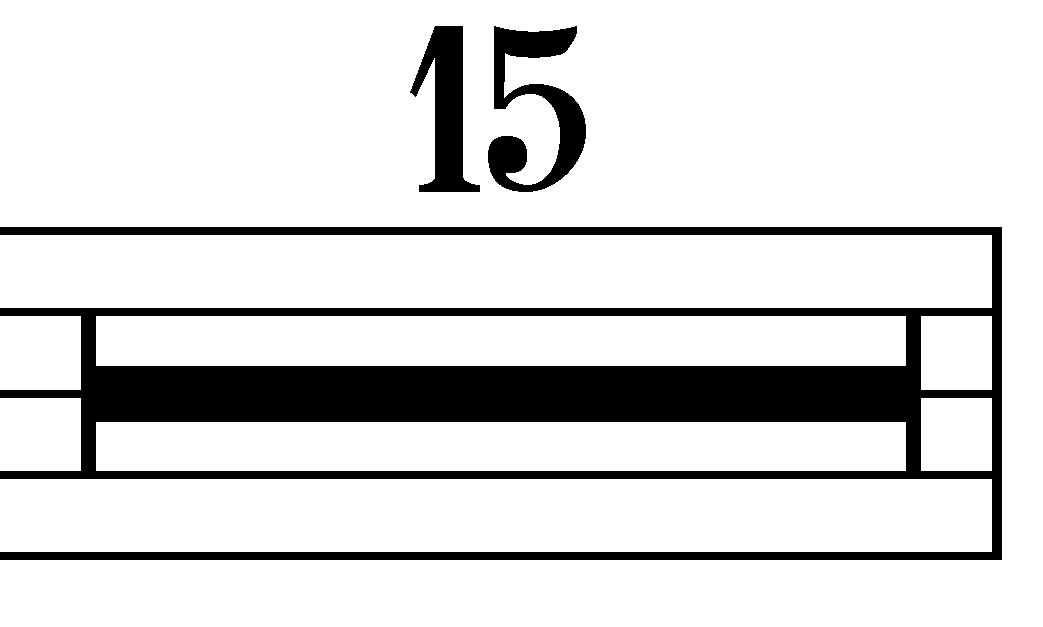|
Der Abendhimmel, WAB 56
' ("The evening sky"), WAB 56, is a song composed by Anton Bruckner in 1866. It is the second setting of the work. In 1862, Bruckner had already composed a first setting of the song for men's voice quartet. History Bruckner composed this second setting "evening song" ''Der Abendhimmel '' on 6 December 1866. He used again the text of Joseph Christian von Zedlitz, which he had already used for the first setting in 1862. Bruckner dedicated the song to ' (singers association of Lower Austria).U. Harten, pp. 41-42C. Howie, Chapter III, p. 19 The piece was performed first by the '' Wiener Männergesang-Verein'' (men's singer society of Vienna) on 17 December 1898. The original manuscript is stored in the archive of '' Österreichische Nationalbibliothek''.C. van Zwol, pp. 724-725 It was first issued as ' by Doblinger, Vienna in 1902 together with the ', WAB 92 "'". The work is issued in Band XXIII/2, No. 19 of the '. Music The 38-bar long work in F major is scored for ch ... [...More Info...] [...Related Items...] OR: [Wikipedia] [Google] [Baidu] |
Anton Bruckner
Josef Anton Bruckner (; 4 September 182411 October 1896) was an Austrian composer, organist, and music theorist best known for his symphonies, masses, Te Deum and motets. The first are considered emblematic of the final stage of Austro-German Romanticism because of their rich harmonic language, strongly polyphonic character, and considerable length. Bruckner's compositions helped to define contemporary musical radicalism, owing to their dissonances, unprepared modulations, and roving harmonies. Unlike other musical radicals such as Richard Wagner and Hugo Wolf, Bruckner showed extreme humility before other musicians, Wagner in particular. This apparent dichotomy between Bruckner the man and Bruckner the composer hampers efforts to describe his life in a way that gives a straightforward context for his music. Hans von Bülow described him as "half genius, half simpleton". Bruckner was critical of his own work and often reworked his compositions. There are several version ... [...More Info...] [...Related Items...] OR: [Wikipedia] [Google] [Baidu] |
Österreichische Nationalbibliothek
The Austrian National Library (german: Österreichische Nationalbibliothek) is the largest library in Austria, with more than 12 million items in its various collections. The library is located in the Neue Burg Wing of the Hofburg in center of Vienna. Since 2005, some of the collections have been relocated within the Baroque structure of the Palais Mollard-Clary. Founded by the Habsburgs, the library was originally called the Imperial Court Library (german: Kaiserliche Hofbibliothek); the change to the current name occurred in 1920, following the end of the Habsburg Monarchy and the proclamation of the Austrian Republic. The library complex includes four museums, as well as multiple special collections and archives. Middle Ages The institution has its origin in the imperial library of the Middle Ages. During the Medieval period, the Austrian Duke Albert III (1349–1395) moved the books of the Viennese vaults into a library. Albert also arranged for important works from Latin ... [...More Info...] [...Related Items...] OR: [Wikipedia] [Google] [Baidu] |
Uwe Harten
Uwe Harten (born 16 August 1944) is a German musicologist, who works in Austria. Life Born in , Harten grew up in Hamburg, where he was a boy soprano at the Staatsoper. He took over the roles of a child. In Hamburg he also began his studies of musicology and art history, which he continued in Vienna with Erich Schenk. He gained his doctorate with his study of the Viennese Schumann admirer Carl Debrois van Bruyck. He then worked as a dramaturgical assistant at the Vienna Chamber Opera. Furthermore, he assisted Anthony van Hoboken in the production of his Werkverzeichnis of Joseph Haydn. Since 1972 he has been a member of the at the Österreichische Akademie der Wissenschaften. Since 1974 he has been secretary and member of the board of directors of the Denkmäler der Tonkunst in Österreich. In addition Harten worked as an assistant at the since its foundation in 1978. From 1988 to 2000 he was also its deputy scientific director and participated between 1977 and 2000 in ... [...More Info...] [...Related Items...] OR: [Wikipedia] [Google] [Baidu] |
Chorus Viennensis
Chorus Viennensis is a male choir associated with the Vienna Boys Choir. It was founded in 1952. The choir has won the Grand Prix du Disque Grand may refer to: People with the name * Grand (surname) * Grand L. Bush (born 1955), American actor * Grand Mixer DXT, American turntablist * Grand Puba (born 1966), American rapper Places * Grand, Oklahoma * Grand, Vosges, village and co ..., the Mozart Interpretation Prize and the Schubert Interpretation prize. References 1952 establishments in Austria Austrian choirs {{Austria-band-stub ... [...More Info...] [...Related Items...] OR: [Wikipedia] [Google] [Baidu] |
Guido Mancusi
Guido Mancusi (born 14 June 1966) is an Austrian-Italian conductor and composer. Life Born in Portici near Naples, Mancusi was the son of the Neapolitan conductor Enrico Mancusi and the Viennese singing teacher Ines Mancusi and grew up in Naples and Padova. He received his first piano lessons from his father, who was a close friend of the composer Nino Rota. After his father's early death, his mother decided to return to her hometown of Vienna with her two children. Mancusi became boy soprano with the Vienna Boys' Choir. After the Matura at the , he began studies in bassoon and singing at the Konservatorium der Stadt Wien. During his school years he became a member of the Catholic secondary school fraternity K. Ö. St. V. Frankonia zu Wien, to which he still belongs today. Studies followed at the Vienna Academy of Music in composition with Erich Urbanner and conducting with Karl Österreicher, he received diplomas with distinction. In 1992 he became ''magister artium'' with a the ... [...More Info...] [...Related Items...] OR: [Wikipedia] [Google] [Baidu] |
Melody
A melody (from Greek language, Greek μελῳδία, ''melōidía'', "singing, chanting"), also tune, voice or line, is a Linearity#Music, linear succession of musical tones that the listener perceives as a single entity. In its most literal sense, a melody is a combination of pitch (music), pitch and rhythm, while more figuratively, the term can include other musical elements such as Timbre, tonal color. It is the foreground to the background accompaniment. A line or part (music), part need not be a foreground melody. Melodies often consist of one or more musical Phrase (music), phrases or Motif (music), motifs, and are usually repeated throughout a musical composition, composition in various forms. Melodies may also be described by their melodic motion or the pitches or the interval (music), intervals between pitches (predominantly steps and skips, conjunct or disjunct or with further restrictions), pitch range, tension (music), tension and release, continuity and coheren ... [...More Info...] [...Related Items...] OR: [Wikipedia] [Google] [Baidu] |
Rest (music)
A rest is a musical notation sign that indicates the absence of a sound. Each rest symbol and name corresponds with a particular note value for length, indicating how long the silence should last. Description Rests are intervals of silence in pieces of music, marked by symbols indicating the length of the pause. Each rest symbol and name corresponds with a particular note value, indicating how long the silence should last, generally as a multiplier of a measure or whole note. * The quarter (crotchet) rest (𝄽) may also be found as a form in older music.''History of Music Notation'' (1937) by C. Gorden, p. 93. * The four-measure rest or longa rest are only used in long silent passages which are not divided into bars. * The combination of rests used to mark a pause follows the same rules as for note values.''AB guide to music theory'' by E. Taylor, chapter 13/1, One-bar rests When an entire bar is devoid of notes, a whole (semibreve) rest is used, regardless of the ... [...More Info...] [...Related Items...] OR: [Wikipedia] [Google] [Baidu] |
Modulation (music)
In music, modulation is the change from one tonality ( tonic, or tonal center) to another. This may or may not be accompanied by a change in key signature (a key change). Modulations articulate or create the structure or form of many pieces, as well as add interest. Treatment of a chord as the tonic for less than a phrase is considered tonicization. Requirements * Harmonic: quasi- tonic, modulating dominant, pivot chordForte (1979), p. 267. *Melodic: recognizable segment of the scale of the quasi-tonic or strategically placed leading-tone *Metric and rhythmic: quasi-tonic and modulating dominant on metrically accented beats, prominent pivot chord The quasi-tonic is the tonic of the new key established by the modulation was semi. The modulating dominant is the dominant of the quasi-tonic. The pivot chord is a predominant to the modulating dominant and a chord common to both the keys of the tonic and the quasi-tonic. For example, in a modulation to the dominant, ii/V–V/V– ... [...More Info...] [...Related Items...] OR: [Wikipedia] [Google] [Baidu] |
Bar (music)
In musical notation, a bar (or measure) is a segment of time corresponding to a specific number of beats in which each beat is represented by a particular note value and the boundaries of the bar are indicated by vertical bar lines. Dividing music into bars provides regular reference points to pinpoint locations within a musical composition. It also makes written music easier to follow, since each bar of staff symbols can be read and played as a batch. Typically, a piece consists of several bars of the same length, and in modern musical notation the number of beats in each bar is specified at the beginning of the score by the time signature. In simple time, (such as ), the top figure indicates the number of beats per bar, while the bottom number indicates the note value of the beat (the beat has a quarter note value in the example). The word ''bar'' is more common in British English, and the word ''measure'' is more common in American English, although musicians generally u ... [...More Info...] [...Related Items...] OR: [Wikipedia] [Google] [Baidu] |
Vaterlandslied, WAB 92
(Patriotic song), WAB 92, is a patriotic song composed by Anton Bruckner during his stay in Linz. History Bruckner composed this song on a text of August Silberstein in November 1866, during his stay in Linz. He composed it together with the ''Vaterländisch Weinlied'' on request of Anton M. Storch. Bruckner dedicated the work to the (Singers' association of Lower Austria). The work was performed by the Liedertafel ''Frohsinn'' on 4 April 1868 in the ''Redoutensaal'' of Linz.U. Harten, p. 463C. van Zwol, p. 725 The work, of which the original manuscript is lost, was first issued by Doblinger, Vienna in 1902, together with ''Der Abendhimmel'', WAB 56. It is issued in Band XXIII/2, No. 20 of the . The quite large-scaled work (13 pages in the ) is considered one of the best works for men's choir of the Linz period. The song, which remained in the repertoire of ''Frohsinn'', was also performed at the ''Bruckner-Feier'' of 1924. Lyrics The song uses lyrics from by August Silb ... [...More Info...] [...Related Items...] OR: [Wikipedia] [Google] [Baidu] |
Wiener Männergesang-Verein
The Wiener Männergesang-Verein ("Vienna Men's Choral Society" or "Vienna Male Voice Choir") is a men's choir in Vienna, Austria, founded in 1843. The choir has regularly appeared with the Vienna Philharmonic, and has performed worldwide. Notable composers, particularly Johann Strauss II, have composed music for the choir. History The choir was founded by August Schmidt, on 6 October 1843 in the inn "Zum goldenen Löwen" ("The Golden Lion"). He was a journalist and founder of the ''Allgemeine Wiener Musik-Zeitung''. The choir's first concert took place on 17 December of that year."Wiener Männergesang-Verein" ''Oesterreichisches Musiklexikon Online''. Retrieved 4 February 2021. [...More Info...] [...Related Items...] OR: [Wikipedia] [Google] [Baidu] |





